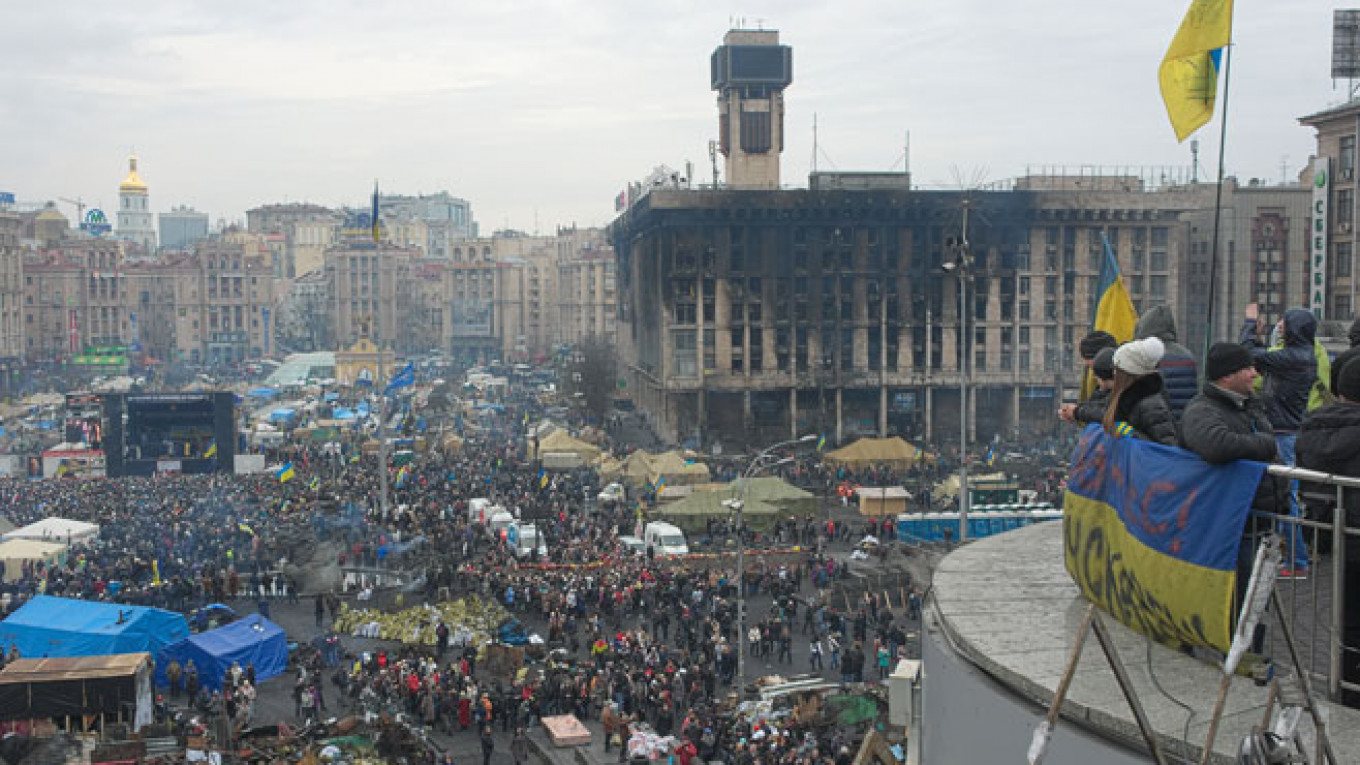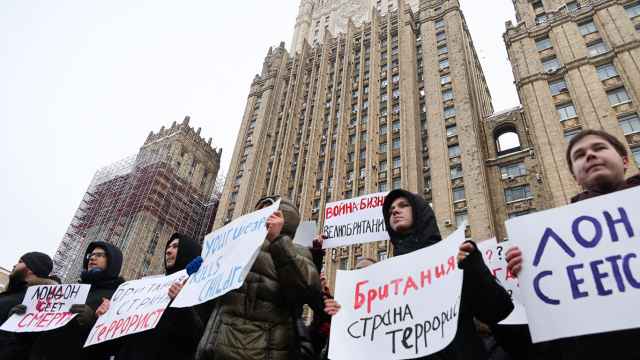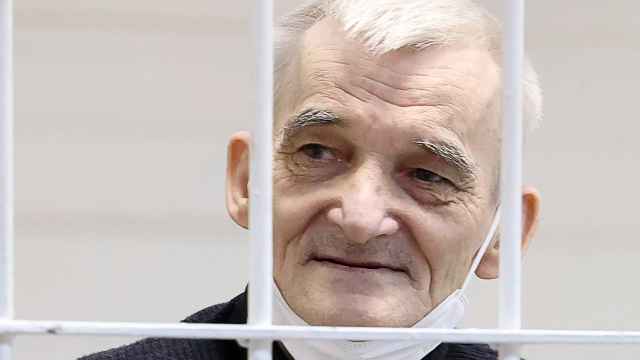When Emperor Nicholas I heard about the outbreak of unrest in France in 1848, he shouted: "Saddle your horses, gentlemen! There is a revolution in Paris." President Vladimir Putin's Kremlin is experiencing similar feelings now. When protestors in the small and strategically unimportant Republic of Macedonia became angered over revelations of government corruption and besieged the government building, the Russian Foreign Ministry rushed to condemn that attempt to stage a "color revolution" in Skopje.
Western politicians have traditionally viewed Kremlin concerns over "color revolutions" as largely rhetorical. However, Putin and his colleagues really do believe that Russia's worst enemies are orchestrating the street protests. "One cannot help but get the feeling that the goal of these various 'color revolutions' and similar projects for changing undesirable regimes is to promote chaos and instability," Foreign Minister Sergei Lavrov said.
The Kremlin believes it is acting not aggressively but defensively by organizing a global campaign to counter the U.S.-led drive toward globalization. Kremlin policy envisions a global struggle between sovereignty and outside interference, while the West prefers casting it as a clash between democracy and authoritarianism.
It is a mistake to underestimate the attractiveness of the Kremlin's model. Kremlin-inspired initiatives cracking down on nongovernmental organizations are sprouting up around the world faster than new McDonald's franchises. According to Amnesty International, 85 countries have become less friendly toward domestic civil initiatives in recent times.
The Orange Revolution in Ukraine in 2004-05 was deeply traumatic for the Russian elite, forcing it to interpret world events through the prism of a fear of "remotely controlled" revolutions. The so-called "Arab Spring," and the astonishing haste with which U.S. President Barack Obama refused support to former Egyptian President Hosni Mubarak increased the Kremlin's conviction that Washington had become a global agent of subversive forces and disorder.
Paradoxically, it is not the Kremlin's global struggle against color revolutions or its realpolitik that presents the greatest obstacle to normalizing relations between Russia and the West. Moscow is directing accusations against Washington and Brussels that they do not understand. Russia is accusing them of things that could not possibly be under their control.
The wave of public protests sweeping the world has become a characteristic feature of our time. They spring up everywhere — in both democratic and authoritarian states.
Of course, people suffering from paranoia do occasionally have real enemies. But the belief that external forces somehow secretly organize all of the myriad protest activities around the world is both illogical and absurd. Russia is seeking to undermine what the West considers the global institutional order, and not because it wants to return to Soviet "imperialism," but because it has chosen to champion the fight against worldwide revolution led, it believes, by Washington. That formula has the potential to provoke endless conflict.
Russia is making demands of the West that no democratic state could promise, much less deliver. Russia is demanding that the West promise that protests will never break out on the streets of Moscow or Beijing. And if they do start, Moscow expects Western governments and mass media to condemn them.
In short, the West does not understand Russia not because it is unwilling to seriously consider Moscow's legitimate interests, but because of the way the Kremlin interprets the basic foreign policy goals and intentions of the West.
Ivan Krastev is the chairman of the Center for Liberal Strategies in Sofia. Stephen Holmes is a professor at New York University. This comment originally appeared in Vedomosti.
A Message from The Moscow Times:
Dear readers,
We are facing unprecedented challenges. Russia's Prosecutor General's Office has designated The Moscow Times as an "undesirable" organization, criminalizing our work and putting our staff at risk of prosecution. This follows our earlier unjust labeling as a "foreign agent."
These actions are direct attempts to silence independent journalism in Russia. The authorities claim our work "discredits the decisions of the Russian leadership." We see things differently: we strive to provide accurate, unbiased reporting on Russia.
We, the journalists of The Moscow Times, refuse to be silenced. But to continue our work, we need your help.
Your support, no matter how small, makes a world of difference. If you can, please support us monthly starting from just $2. It's quick to set up, and every contribution makes a significant impact.
By supporting The Moscow Times, you're defending open, independent journalism in the face of repression. Thank you for standing with us.
Remind me later.






